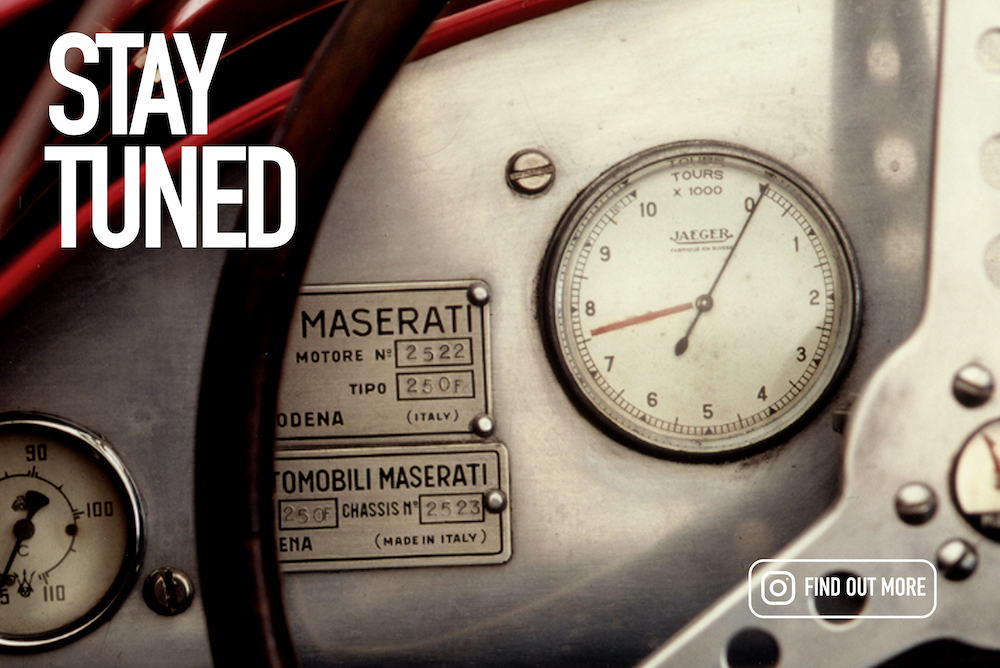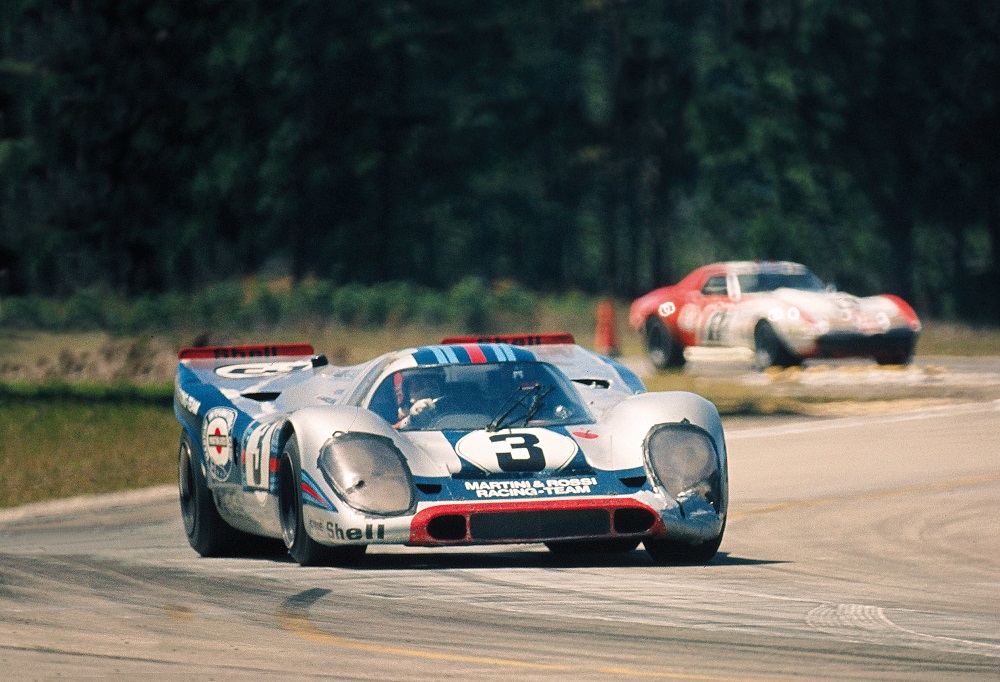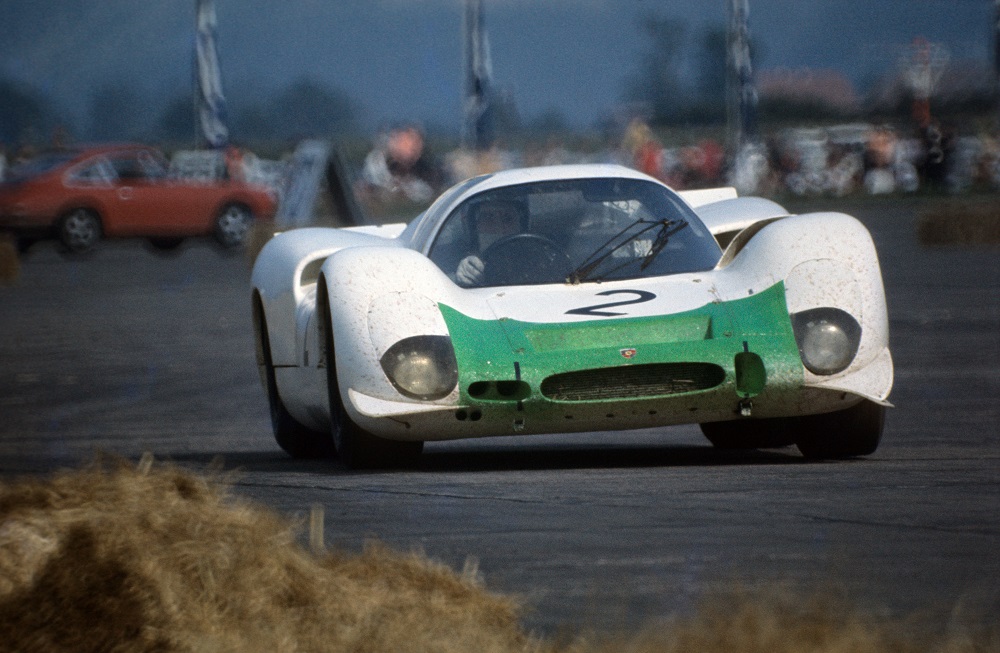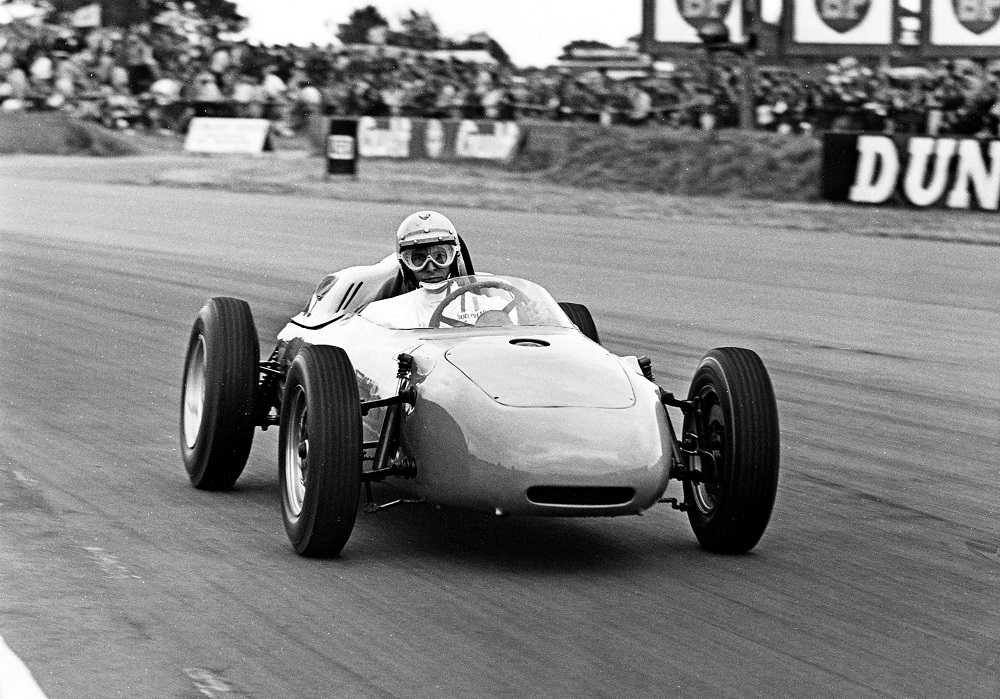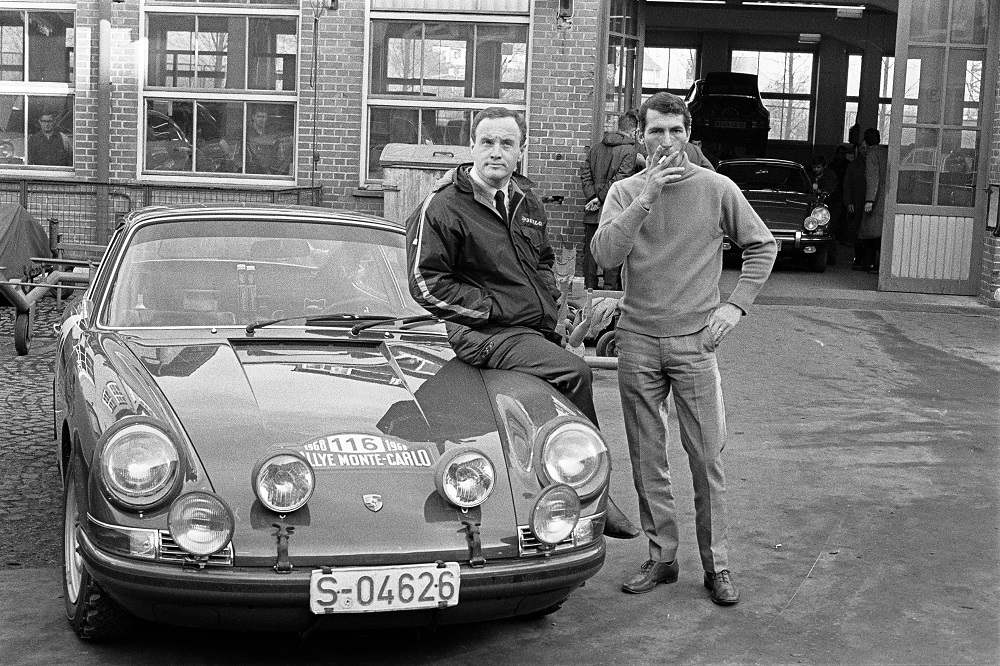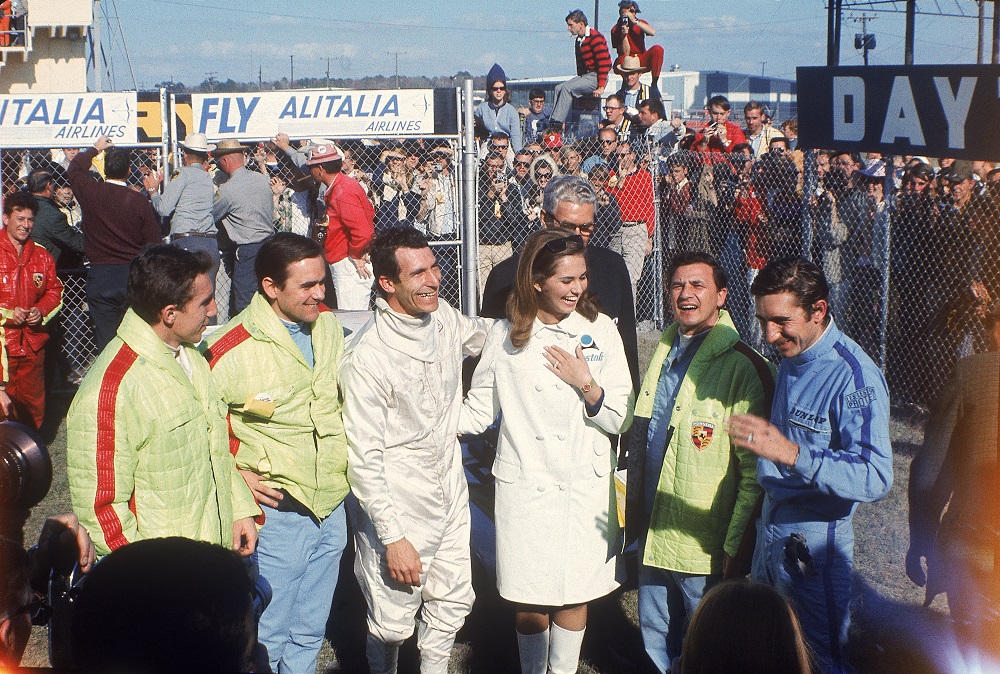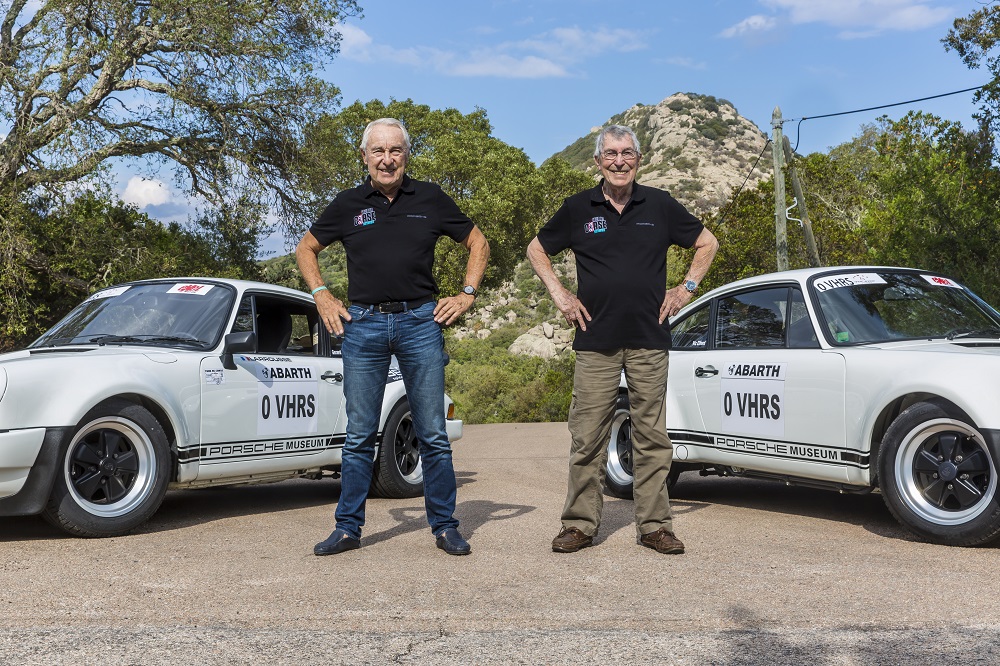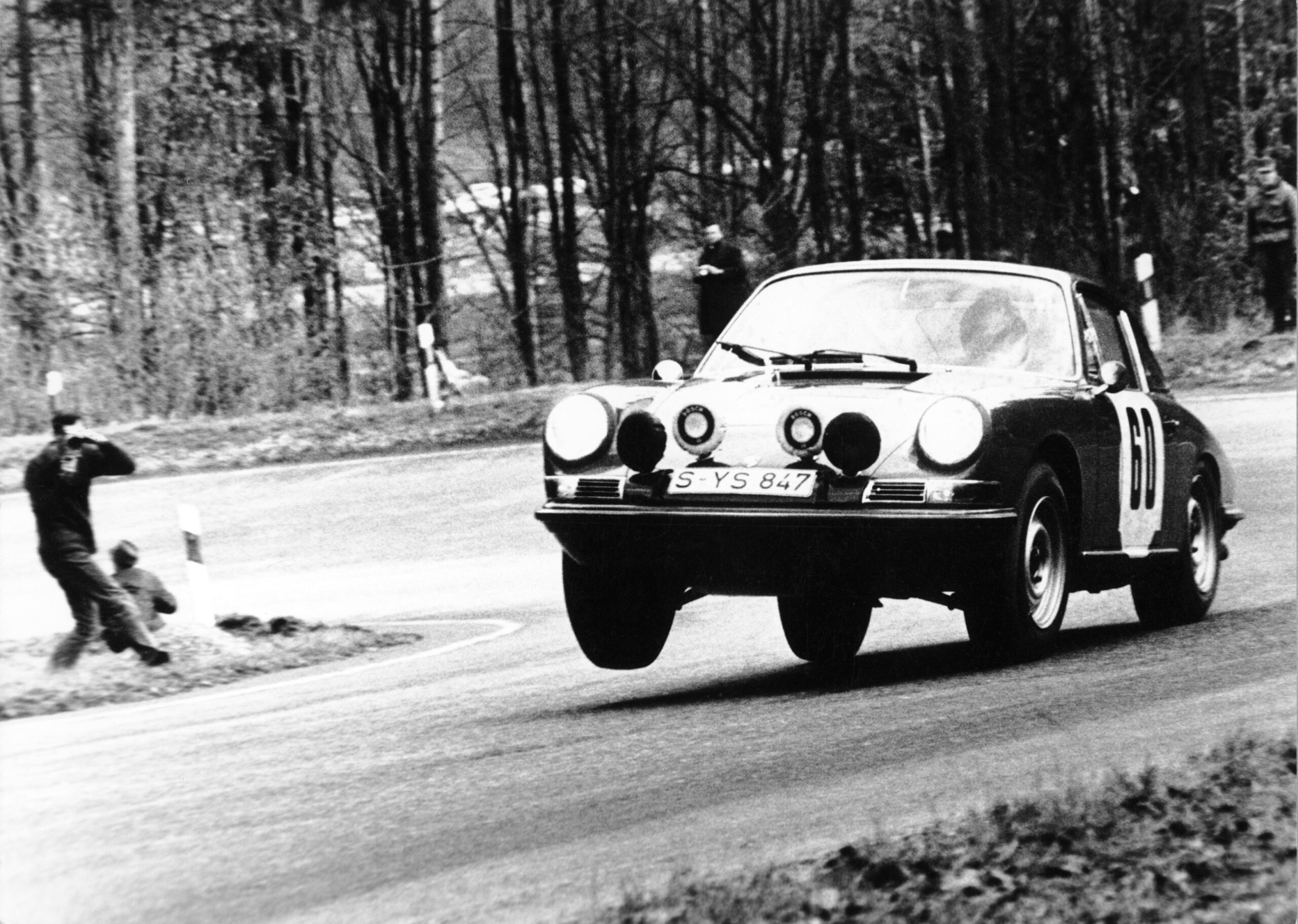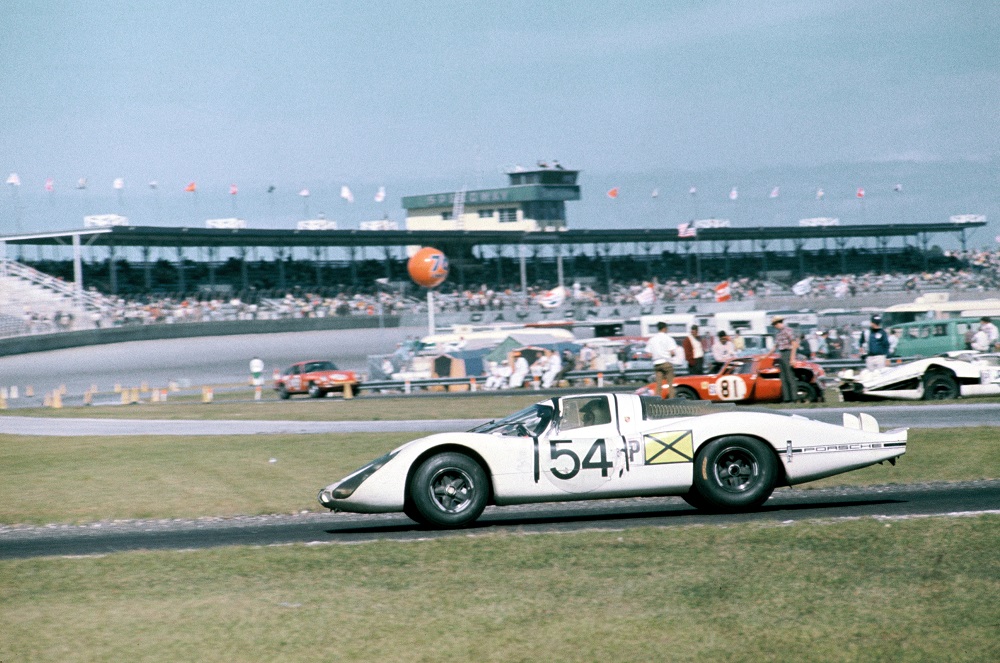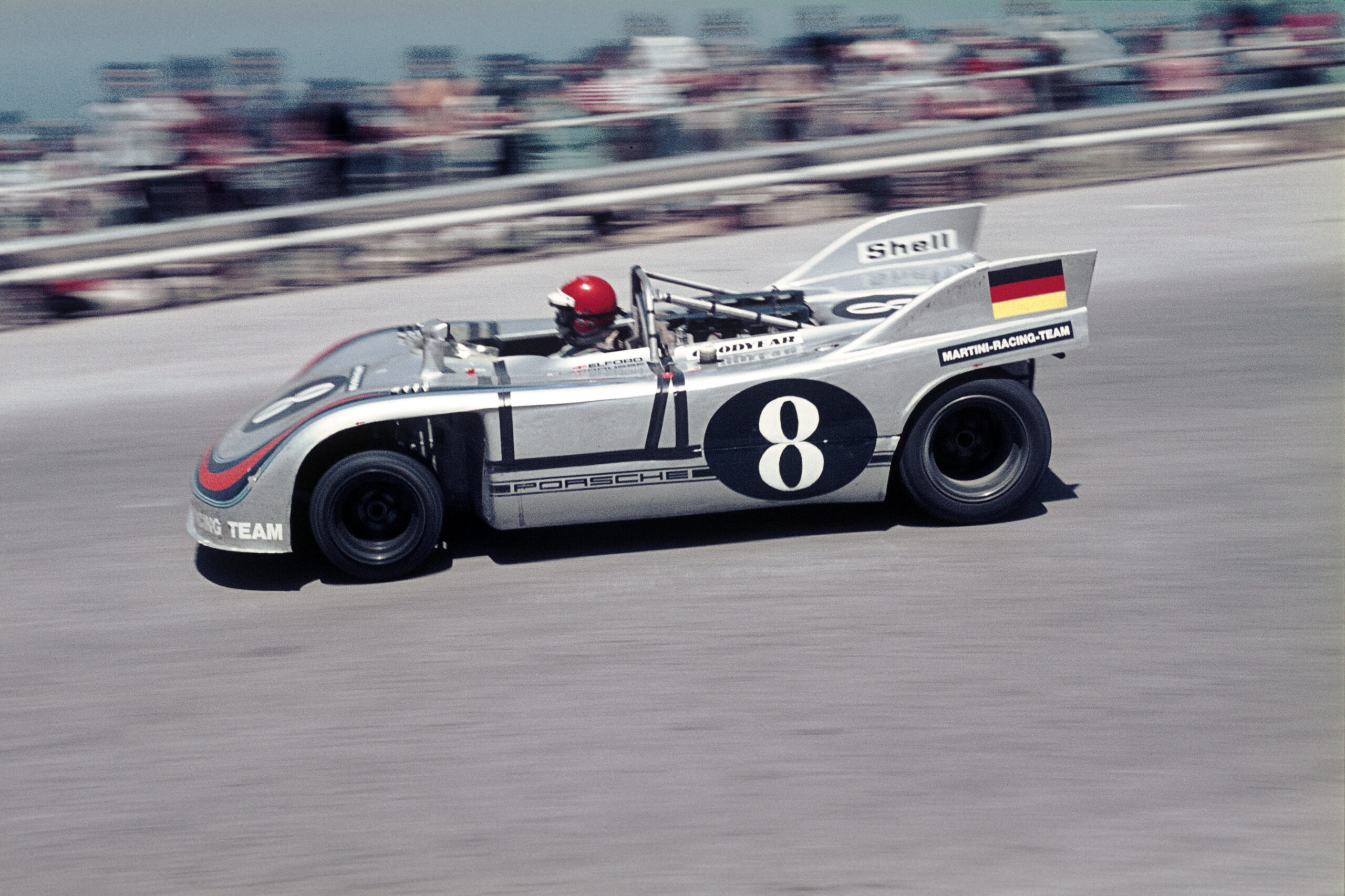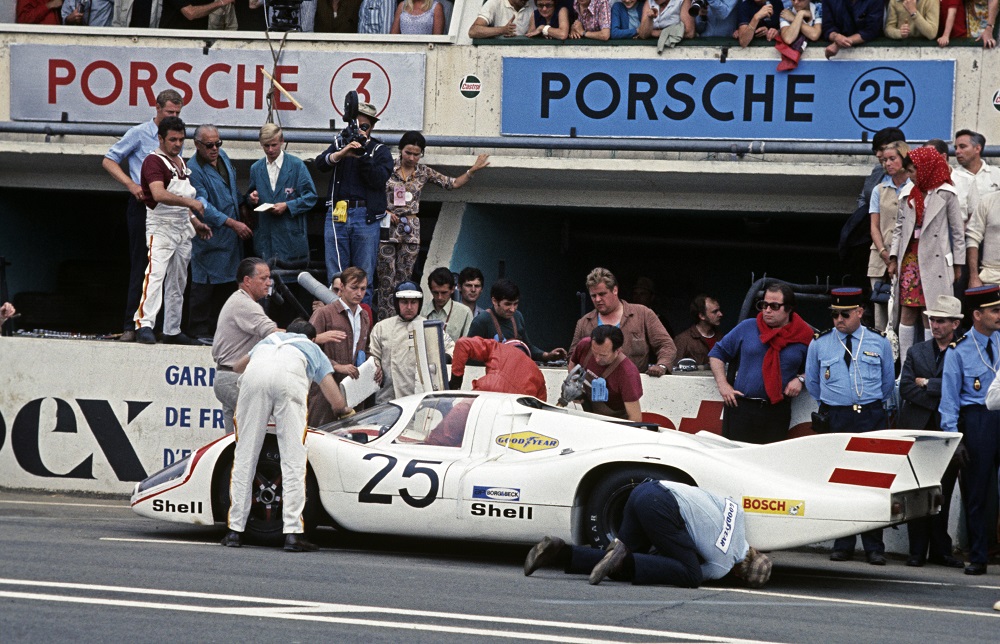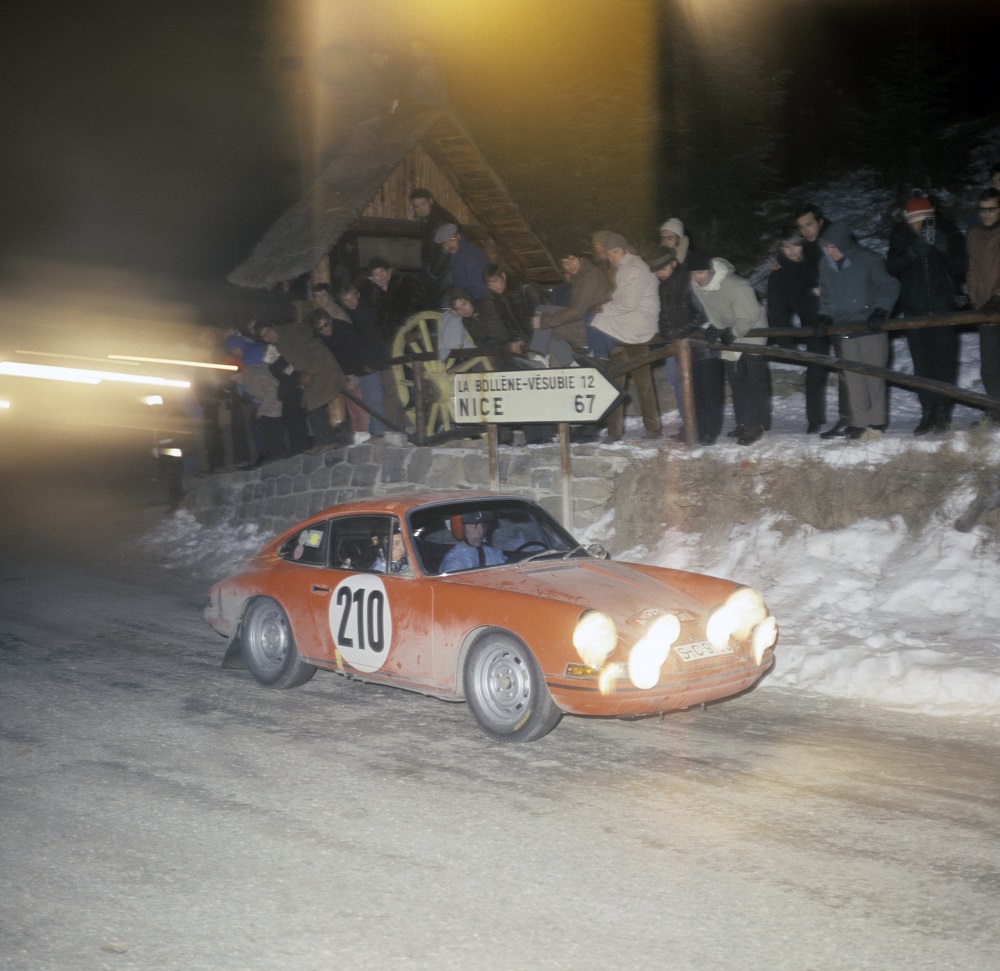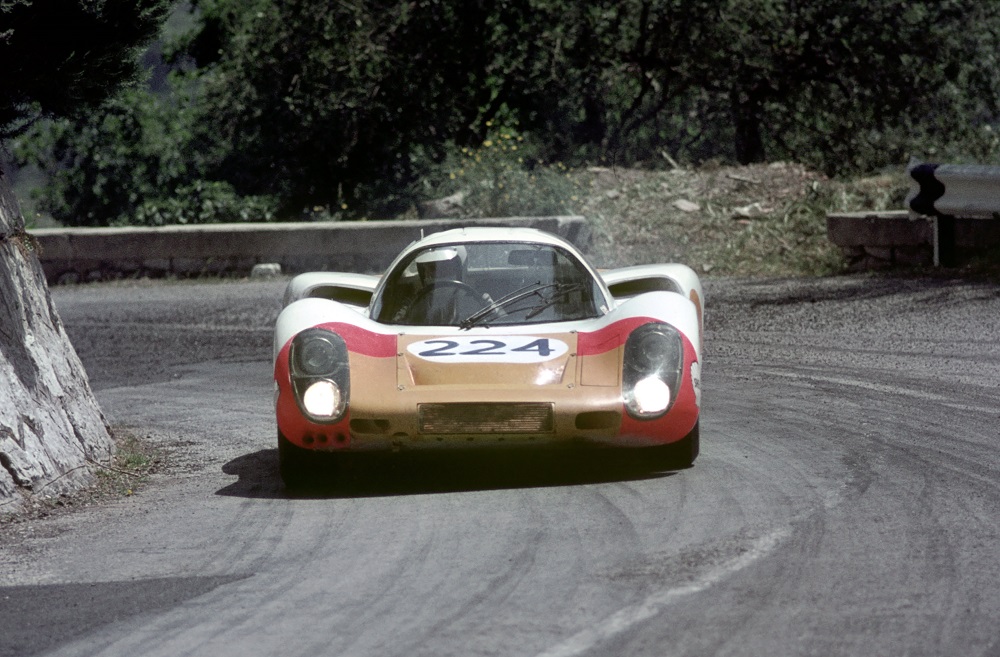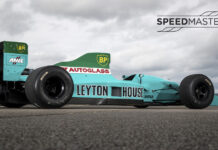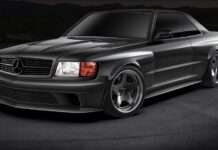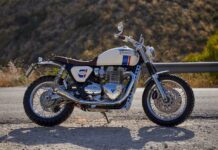Dr. Ing. h.c. F. Porsche AG is paying its respects to one of the most successful and versatile works racing drivers ever to represent the Stuttgart-based sports car manufacturer: Victor Henry Elford passed away on 13 March 2022 at the age of 86 at his home in Florida.
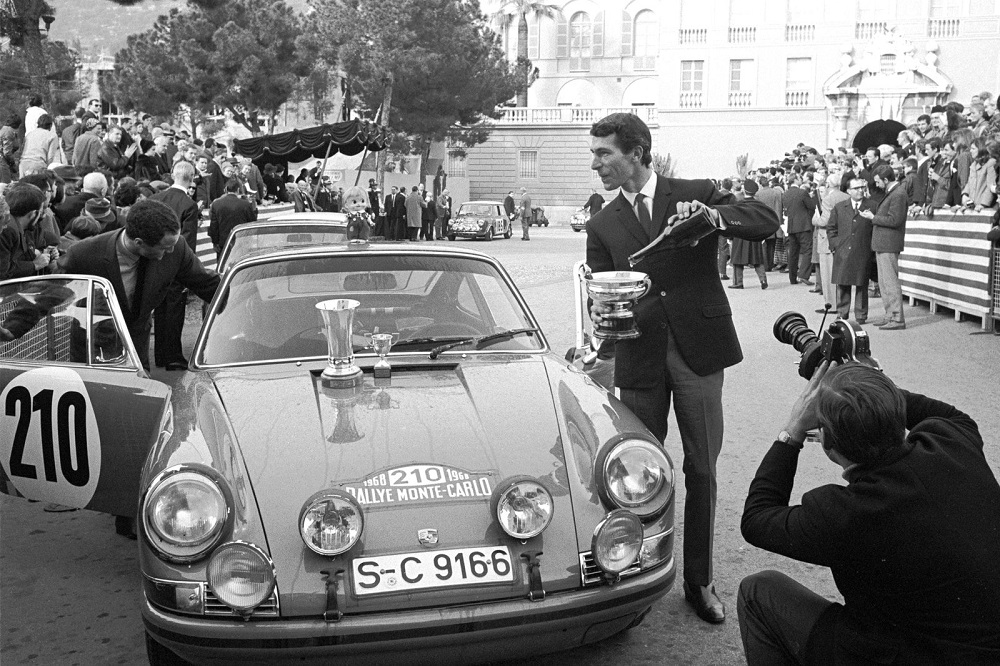
The intelligent Englishman dominated rally and circuit racing around the world for years, particularly in the late 1960s. “The news of his death represents a very sad loss for us. Our thoughts are with his family,” says Michael Steiner, Member of the Executive Board, Research and Development. “We thank Vic Elford for his passion and extraordinary dedication. He was one of the most multi-talented and successful racing drivers to have competed for and with Porsche.”
Elford was born on 10 June 1935 in Peckham, London. After completing a technical qualification, he got his first taste of racing at the World Sportscar Championship in 1964. In 1966, Elford took third place in the Tour de Corse driving a Porsche 911, and a year later won the Stuttgart-Lyon-Charbonnières rally. In 1967, he also won the first rallycross event in history at the Lydden Hill Race Circuit in Kent with a Porsche 911 R supplied by the British importer, AFN. Hugely talented, he also became the European Rally Champion the same year, with the result that Porsche promptly offered him a contract as a works driver.
In 1968, fans affectionately began referring to him as ‘Quick Vic’, in response to Elford’s incredible and unique set of results that year: he won the Monte Carlo Rally in January, the 24 Hours of Daytona in February, and both the Targa Florio and the 1,000 kilometre race at the Nürburgring in May. Thanks to his photographic memory, Elford was able to give vivid accounts of all his successes until the end of his life.
He never forgot his most exciting moments at the Monte Carlo Rally. He drove a 911 S for his first entry in the event, which was in 1967, earning Porsche a class victory and a third-place finish in the overall rankings. In January 1968, he was at the wheel of a Porsche 911 T, which boasted a power output of 170 PS while weighing less than a ton. He chose to start his rally to Monaco in Warsaw. Frenchman Gérard Larrousse, in a Renault Alpine, was the first to roll onto the ramp in front of the Casino in Monte Carlo thanks to his 14 second lead over Elford and co-driver David Stone in second. The battle between the two drivers is legendary: “Before we reached Col de la Couillole, my co-driver said: ‘Relax. Last night we checked the roads for ice and snow. There might be less on the road but we know for certain there won’t be any more. So trust me; trust our notes. You know you’re the fastest in the mountains, so just drive.'” Elford relaxed and did exactly that – although the assumption about the snow was not entirely correct: some spectators who had come out to watch the show had covered the tarmac with snow but it was Larrousse who skidded on it, not the Porsche team. Elford: “When we had recovered from this special test, I asked David: ‘How many corners could I have taken faster?’ ‘Two,’ he said. I thought it would be three.” Elford continued, saying: “I chose racing tyres. With blind confidence in David, I went full throttle over an icy patch, going 200 km/h in fifth gear. At the time I smoked like a chimney, but after that drive it took me two or three attempts to light a cigarette – those 26 kilometres completely wiped me out.”
Just as he never gave up smoking, Elford was fully committed to the qualities of the Porsche 911 for his whole life: “It’s the only car that’s adaptable enough to use in all possible circumstances. Snow, ice, tarmac, uphill, downhill, fast or slow – the 911 can do anything.” Despite being a humble man throughout his life, Elford knew what he was capable of. He once said: “Could a Porsche 911 have won the Monte Carlo Rally without me? Yes – but not in 1968. I don’t think anybody else could have driven a 911 like I did at the time.”
Elford was exceptionally fast in other types of Porsche too. Just a month after Monte Carlo, he won the 24 Hours of Daytona in a Porsche 907 LH (‘Long Tail’). Elford and Porsche had another reason to celebrate at the beginning of that May: the Brit pulled off an incredible victory at the Targa Florio in the Porsche 907 KH (‘Short Tail’). “The Targa Florio was always my favourite race,” Elford said on many occasions. Between 1967 and 1972, he competed six times in a row. Although he only won in 1968, he achieved the fastest lap in all of the succeeding races. Elford always spoke highly of the helpful Sicilian people who were essential in achieving one of his greatest triumphs. Elford recalled: “Shortly after the race started, I lost a wheel between Cefalù and Cerda. The spectators jumped from the wall, lifted up my lightweight car and I was able to put on the spare wheel. Just imagine how this looked: a British man in a German car winning in Italy.” The crowd was not fazed by this scenario when Elford had to stop again a few corners later: “I lost another wheel. Once again, the people picked up the car but I didn’t have another spare so a fan unscrewed the wheel from his own car and gave it to me.” ‘Quick Vic’ was always especially proud of a poster on the wall of his Florida home, showing an image of him with the words ‘Classifica Assoluta’ and below that ‘1. Elford Maglioli 907’. The Porsche logo is only shown to one side of the picture, which is unusual. Porsche was celebrating the driver, not the brand, on this victory poster.
Elford was back behind the wheel just two weeks after his Targa triumph, this time in a Porsche 908 KH alongside Jo Siffert in the 1,000 kilometre race at the Nürburgring, where they outclassed the competition. He went on to repeat this victory in the Eifel mountains in 1970 and again in 1971. Elford always remained a true gentleman, as demonstrated in Bastia in November 1968. Shortly before the start of the Tour de Corse, Porsche’s head of racing car development, Peter Falk, took his top works driver to one side for a chat. “We need a French driver for rallies like this. Who would you take?” Elford thought it over. He would have liked to have recommended his good friend Jean-Francois Piot, but he knew an even better driver: “Take Gérard Larrousse.” Falk followed Elford’s advice and Porsche never regretted the decision: in 1969 alone, Larrousse won the Tour de Corse, the Rallye Neige & Glace and the seven-stage Tour de France Automobile in a Porsche 911 R.
Throughout his life, Elford was not only enthusiastic about the 911; he was also a huge fan of the Porsche 917, even though it was not always easy to handle. He drove six different 917 models in 16 races from 1969 to 1971, including Le Mans. But, even with six different models, he never managed to claim a victory there. He narrowly missed out in 1971 when he drove the Porsche 917 LH together with Gérard Larrousse for 21 hours until his race was brought to a premature end by a technical failure. “It was definitely a nasty beast because the engine was so heavy,” Elford recalled. “The gearbox was mounted behind the engine. Due to twisting, shifting gears became more and more problematic during the race and, when taking the Mulsanne curve, we had to admit defeat because the gearbox was so damaged.” The year 1973 was the last time that Elford drove a 917: “We borrowed a 917/30 from the factory for the Interserie race in Hockenheim. I had never driven a turbo racing car before then, so I had to prove in tests at Weissach that I could drive a car like that. I actually broke the lap record there, and went on to win the race too. I just loved that car.” He also started with the 917 when racing in Sebring. In 1971, he took first place on the podium. In 2014, he was inducted into the Sebring Hall of Fame.
Because Elford was reliable and fast, he was hired by Steve McQueen to film the high-speed scenes of his 1970 film ‘Le Mans’. Elford’s Formula One career was almost incidental. Between 13 Formula One races from 1968 to 1971, he hopped into cars in the CanAm and Trans-Am series, sat behind the wheel at off-road events in Africa and braved the Nascar oval tracks. He enjoyed immense success at rallies and circuit races for a total of 12 years. In 1972, he was named Chevalier of the National Order of Merit by the French President for stopping at Le Mans mid-race to rescue a driver from his burning car.
Elford retired from professional racing in 1974 and in 1975 embarked on a new path, working with the racing car project Inaltera before going on to manage the ATS F1 team. After moving to the US in 1984, he managed the Porsche Owners Driving School and the Porsche Driving Experience. He chronicled his experiences in two books, ‘The Porsche High-Performance Driving Handbook’ and ‘Reflections on a Golden Era in Motorsports’. Even in his later years, Elford was happy to get back behind the wheel, like when he drove a 911 in the Tour de Corse Historique in 2017, or when he and other Porsche legends, such as Herbert Linge, Gérard Larrousse and Jean-Pierre Nicolas, took a trip down memory lane and had another go at the special tests of the Monte Carlo circuit in 2018.
During his life, the clever driver known for his broad smile also loved the French and their way of life. “France is probably the only country – besides the US – with such varied geography, topography, climate and weather conditions for every type of rally,” he once enthused. “There is also such a welcoming culture in Savoy, the Alps, the Pyrenees – the whole ‘Camaraderie Française’, which can’t be found anywhere else in the world.”
Vic Elford leaves behind his French wife Anita and a huge fan base. Dr. Ing. h.c. F. Porsche AG says goodbye to one of the most likeable and successful racing drivers of all time.
Highlights of Vic Elford’s racing career
1967: European Rally Champion in a Porsche 911 S
1967: First race at Le Mans, finishing first in his class and seventh overall in a Porsche 906K Carrera 6
1967: Winner of the first rallycross event in history in a Porsche 911 R
1968: Winner of the 1,000 kilometre race on the Nürburgring in a Porsche 908
1968: Winner of the Monte Carlo Rally in a Porsche 911 T
1968: Winner of the Targa Florio in a Porsche 907 KH
1968: Winner of the 24 Hours of Daytona in a Porsche 907 KH
1968 –1971: Thirteen starts in Formula One
1969: Winner of the Nürburgring 1,000 kilometre race in a Porsche 908
1970: Winner of the Nürburgring 1,000 kilometre race in a Porsche 908
If you are interested in more news click here.
